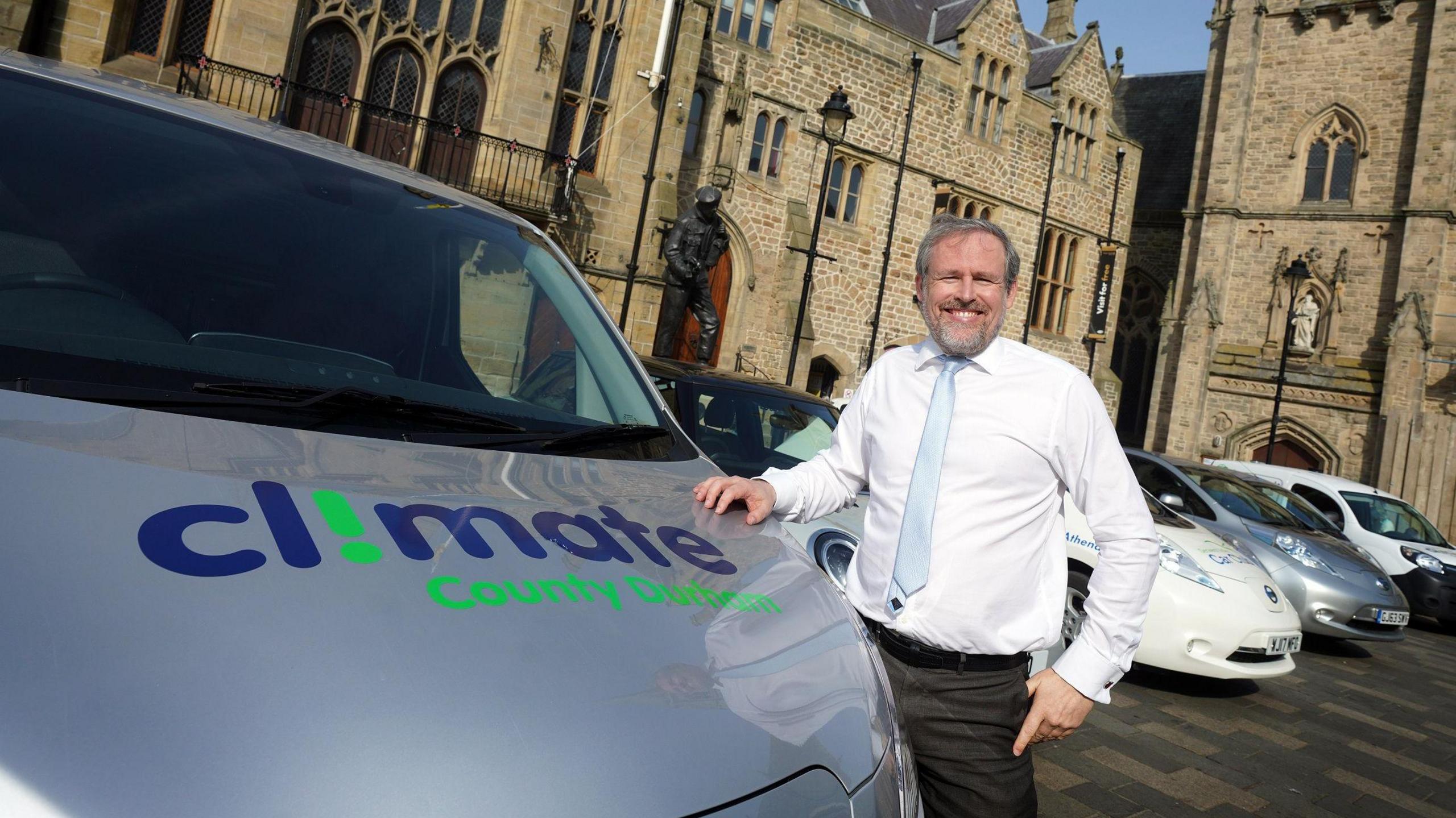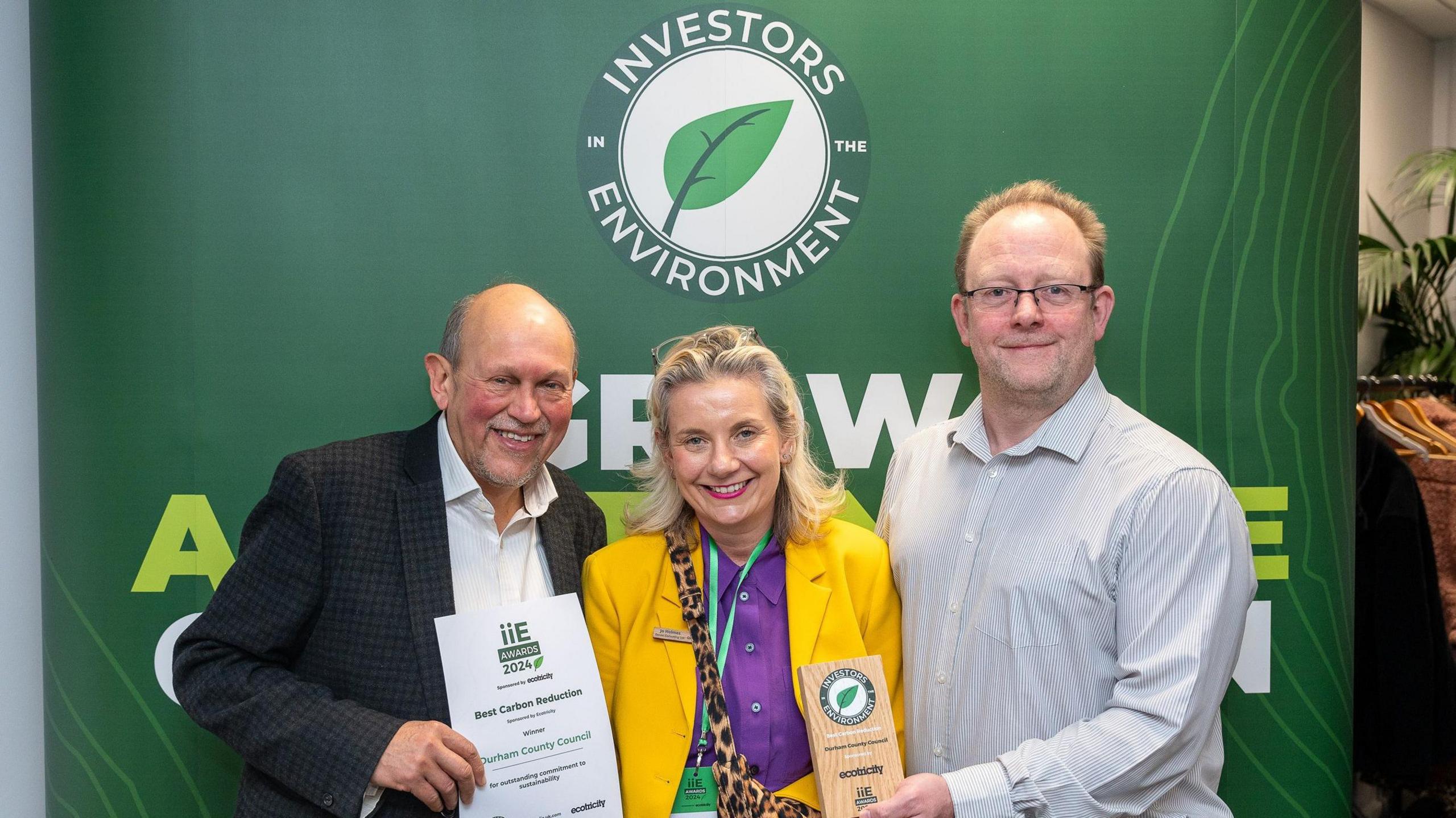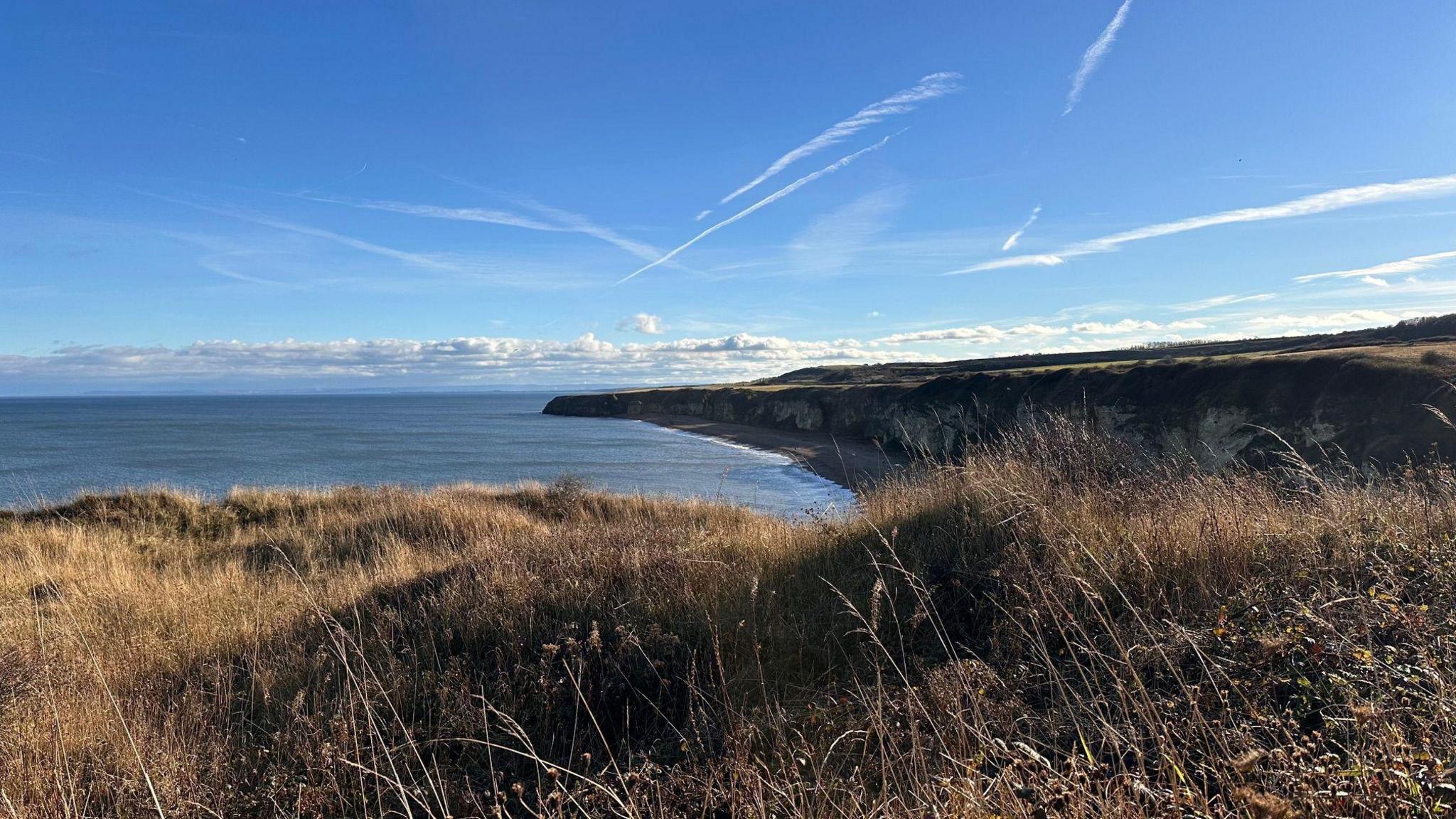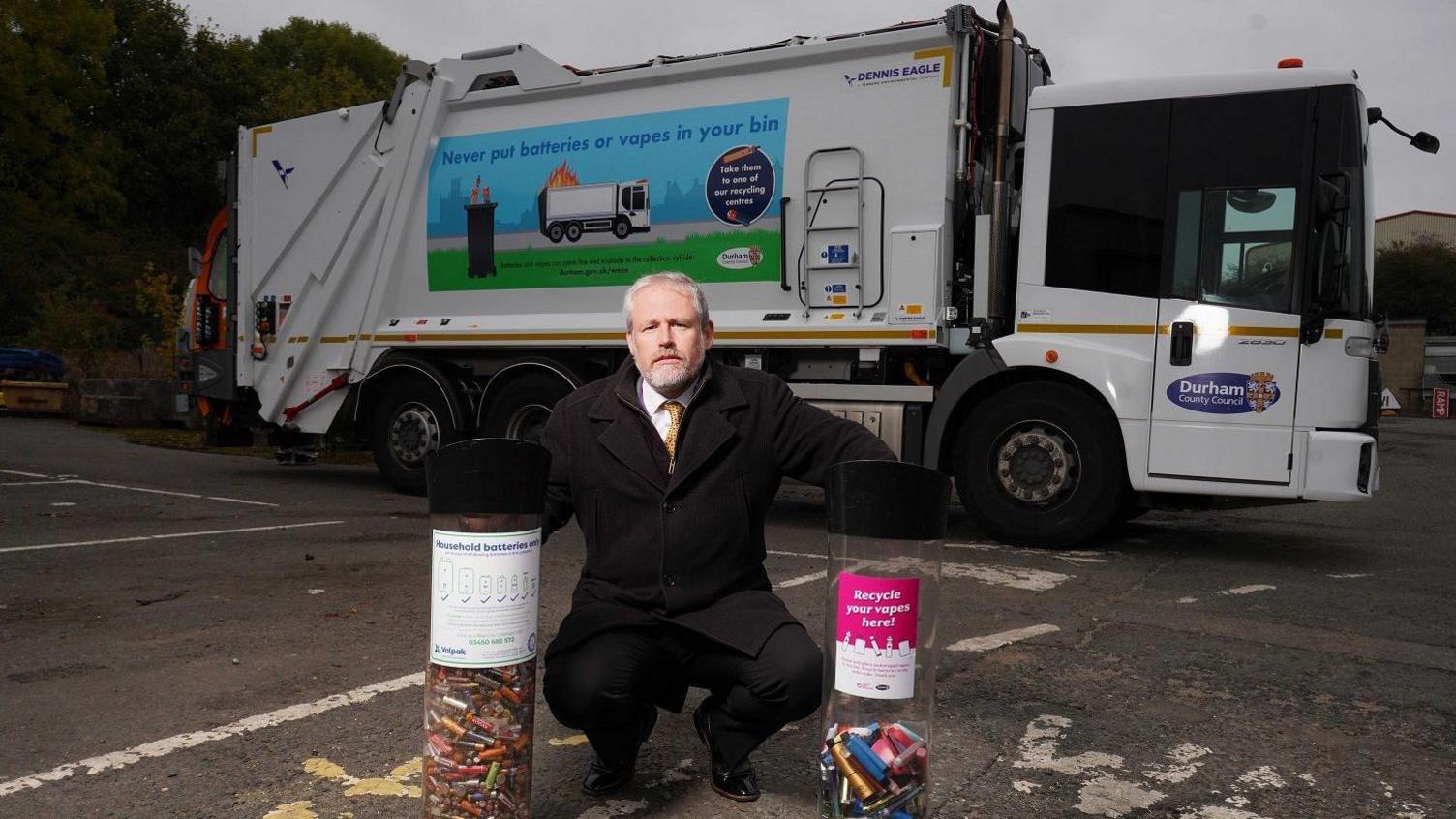Renewables help council scoop climate change award

Councillor Mark Wilkes said Durham County Council's plans were saving money and reducing carbon emissions
- Published
A council which has cut its annual carbon footprint by 50,000 tonnes over 15 years has won an environmental award.
Durham County Council scooped the Best Carbon Reduction prize at the Investors in Environment Awards for its efforts.
Much of its reduction is down to the use of green technology such as wind turbines, solar panels and battery storage.
Councillor Mark Wilkes said the council's green projects allowed it to "save money and save carbon".
A large part of the reduction has been achieved by switching its buildings to renewable energy, some of which is produced using the council's own infrastructure.
"A lot of our schools, depots, leisure centres are switching over to air source heat pumps," said Wilkes.
"We are installing solar panels on to the roofs of our buildings and we have wind turbines going in at one of our depots down in Peterlee."

Durham won the Best Carbon Reduction category at the Investors in the Environment awards
The council has also built a 3MW solar farm at its depot in Annfield Plain, from where excess energy is sold back into the grid.
Having its own green energy source has also allowed the council to operate more electric vehicles.
"Being able to charge up those vehicles with the energy we are producing in the county is having a really important impact on the bottom line financially, but also on tackling carbon emissions," said Wilkes.
Durham County Council's carbon footprint has fallen from 80,523 tonnes in 2008-09 to 29,173 in 2023-24, with an aim of net zero by the end of the decade.
The local authority recently adopted its third Climate Emergency Response Plan, which will run until 2027.
Follow BBC North East on X, external, Facebook, external, Nextdoor and Instagram, external. Send your story ideas to northeastandcumbria@bbc.co.uk.
Related topics
More stories from BBC North East and Cumbria
- Published16 November 2024

- Published7 November 2024
